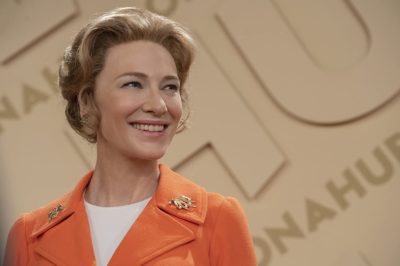So, we have one more reading list for the hot months! For this one, I’ve mixed in a couple of TV shows. Along with that, I’ve mixed in a novel, a non-fiction work, and a couple of books on baseball stats. I have to admit, I’ve enjoyed revisiting the baseball stats literature. You might see more of these books coming in the next months.
Enjoy, and let me know what you’ve been reading!
Books
Baseball Prospectus – Baseball Between the Numbers and Extra Innings
As you can see, I’m continuing my summer baseball reading theme. Lately I’ve been reading some sabermetrics books, i.e., baseball nerd books! Baseball Prospectus – a baseball analytics website – put out these two. They organized the books around common questions fans and analysts ask when they talk about the game.
They ask about nearly all aspects of the game – from pitching to hitting to fielding to managing. And they provide answers that often diverge from common sense or conventional baseball wisdom. The first book is a bit older – published in the mid 2000s and even featuring an early Nate Silver as an author. But I still find both highly relevant.
They’re also quite accessible to people who don’t already know baseball stats in detail. Any fan of the game should go for it!
Bill Bishop – The Big Sort
Bishop wrote this book nearly 20 years ago. He situated it within the theme started by Robert Putnam – the alleged breakdown of U.S. society beginning in the 1960s. Bishop’s take on it? He thinks people voluntarily moved around the country to get closer to people like themselves. This voluntary internal migration led to the hardened partisan attitudes and acrimonious politics we all know and love in the U.S.
Few would deny our politics are acrimonious and that it’s gotten even worse since Bishop published this book. But I’m skeptical Bishop identified the true major cause.
Bishop provides a lot of social scientific evidence, but little of it supports his thesis. He shows evidence for a lot of internal migration, but it’s not clear whether it’s ‘voluntary’ and based on forming ‘tribes’ of like-minded people. He shows that people in communities vote alike, but it’s not clear migration has much to do with it. And he points to the growth of tech cities, but surely larger economic forces caused that.
If anything, I find that Bishop often reverses the causal order. People probably have similar ideologies due to the forces pushing them to live near each other, not that they live near each other because they have similar ideologies. In addition, Bishop often conflates partisan affiliation with ideology, thereby falling into the very stereotypes he so wants to break.
And so, yeah. Bishop identifies a clear problem. But I don’t think he tells us much about why it’s happening or how to solve it. He misses the deeper causes at work.
Kazuo Ishiguro – Never Let Me Go
I think this was a very popular book when it was first released. And it’s fine. The book has a conventional sci-fi plot at the surface – cloning and organ harvesting. But Ishiguro tells it in a very non sci-fi way. In the end, it amounts to a story about three people and the close friendship they develop. The fact they’re all forced organ donors ends up merely a key aspect of their friendship.
Readers looking for sci-fi ought to pass it by. However, readers looking for more standard fiction with a sci-fi-ish background should find it interesting enough.
TV Shows
Mrs. America
In theory, this is supposed to be a short and focused miniseries about the battle over the U.S. Equal Rights Amendment. American feminists lined up on one side of the debate, while a group of anti-feminist women lined up on the other side of the debate. In practice, it did much more than this. It also discussed some of the key divisions within both feminist and anti-feminist movements – splits between black and white feminists, the process of founding the Eagle Forum, and so on.
As a miniseries, it basically works. But its historical accuracy often comes into question. While it seems to succeed in its portrayal of Phyllis Schlafly, I’m not sure I recognize its version of Gloria Steinem, Shirley Chisholm, or Betty Friedan. The show often reads contemporary debates into history in a way that obscures as much as it enlightens.
Picard, Season 2
I watched Season 1 of Picard awhile ago. Yes, I appreciated the return of my favorite Star Trek character. But I didn’t think much of the new show. It never managed to either develop a new plot or recapture the spirit of The Next Generation. So, I wasn’t too optimistic about the second season.
But Season 2 works much better than Season 1. We see the return of several major characters from TNG without an excessive lapse into nostalgia. If you were in the same camp as me after Season 1, I’d recommend giving Picard another shot.
